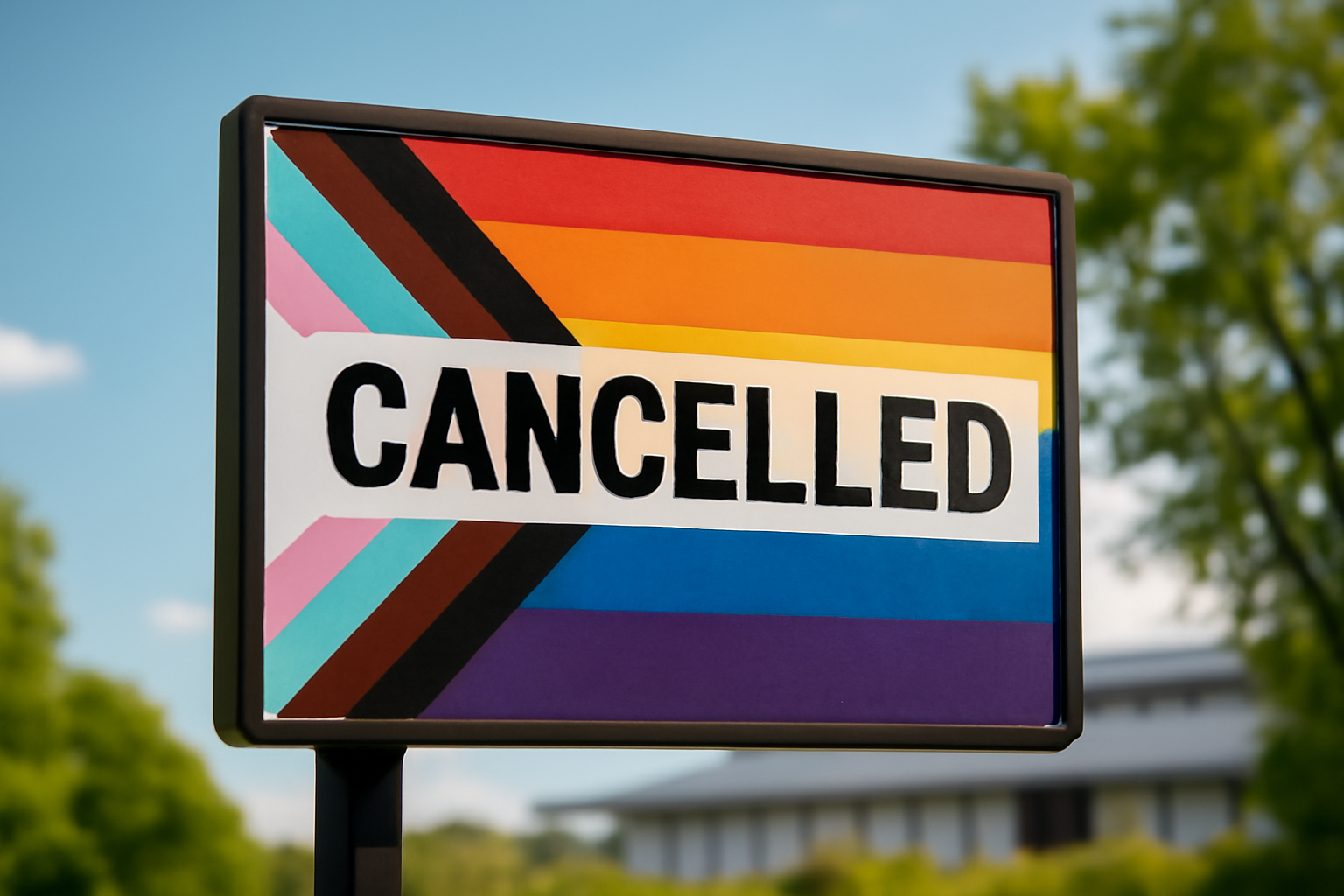
The Kennedy Center, renowned for its commitment to the performing arts and cultural inclusion, recently made headlines with the unexpected cancellation of its much-anticipated LGBTQ+ Pride concert. This decision follows a significant change in leadership, which has sparked a wave of concern and discussion among both the LGBTQ+ community and advocates of inclusive arts programming.
Originally slated to be a vibrant celebration of diversity and pride, the concert was intended to showcase a range of performances from LGBTQ+ artists. It was expected to feature music, dance, and spoken word pieces that highlight the rich cultural contributions of the LGBTQ+ community to the arts. The event promised to be a landmark in the Center's calendar, symbolizing its support for inclusivity and equality.
Leadership Changes at the Kennedy Center
The abrupt decision to cancel the concert came on the heels of a leadership shift within the organization. The new administration, which took over following a recent election, has outlined different priorities and strategies, leading to the reevaluation of several scheduled events. Sources from within the Kennedy Center suggest that the new leadership aims to focus on broader, more traditional programming to attract a wider audience.
This pivot in strategy has been met with disappointment and frustration from those who were excited about the concert. Many see it as a step back from the inclusive ethos that the Kennedy Center had been cultivating over the years. Several members of the LGBTQ+ community have expressed concerns that this decision reflects a diminishing commitment to diversity and representation in the arts.
Community Response
In response to the cancellation, LGBTQ+ advocacy groups and allies have been vocal. Social media platforms have seen a surge of activity under hashtags related to the event, with many users expressing their discontent and advocating for the concert to be reinstated. Petitions have been circulated, demanding that the Kennedy Center reconsider its decision and proceed with the Pride concert as originally planned.
Local LGBTQ+ organizations have also stepped up, offering support to artists who were scheduled to perform. Efforts are being made to find alternative venues where the performances could still take place, preserving the spirit of the event and providing a platform for artists to share their work with the community.
The Importance of Inclusive Programming
Inclusive programming in cultural institutions like the Kennedy Center is crucial for fostering a sense of belonging and representation among diverse communities. Events like the LGBTQ+ Pride concert not only celebrate the contributions of LGBTQ+ artists but also serve as a public affirmation of their identities and experiences.
For many, the concert was more than just an event; it was a symbol of acceptance and progress. The cancellation is seen as a loss, not only for those directly involved but also for the broader community that looks to such institutions to lead by example in promoting diversity and inclusion.
Advocates argue that cancelling the concert sends the wrong message at a time when representation and visibility are more important than ever. They emphasize that the arts have the power to challenge prejudices, foster empathy, and unite people from different backgrounds.
Moving Forward
While the decision to cancel the concert has been met with disappointment, it has also galvanized supporters of LGBTQ+ rights and inclusive arts. Many are hopeful that ongoing dialogue with the Kennedy Center's leadership could lead to a reconsideration of the decision or, at the very least, a commitment to future programming that reflects a diverse range of voices and experiences.
The conversation surrounding the cancellation has highlighted the need for ongoing advocacy and engagement with cultural institutions to ensure that they remain inclusive and representative of all communities. The Kennedy Center, with its rich history and influence, has the potential to be a leader in this area, setting a standard for other institutions to follow.
As the situation evolves, many will be watching closely to see how the Kennedy Center responds to the feedback from the community and what steps it takes to address the concerns raised. Regardless of the outcome, the movement for inclusive and diverse programming in the arts continues, underscoring the importance of visibility and representation in cultural spaces.
Ultimately, the hope is that this incident will spark a broader conversation about the role of cultural institutions in advocating for and supporting marginalized communities, paving the way for more inclusive programming in the future.
Related Posts
Pride Month in Latin America: Protests and Demands for Equality
**Celebrating Pride and advocating LGBTQ+ rights in Latin America** Pride Month in Latin America was a lively mix where celebration met activism. Communities united, not just throwing a party but making a stand—demanding equality and pushing governments toward better protection and rights recognition. Throughout Latin America, pride events erupted in marches and cultural displays, each with a c [...]
Transgender Erasure Actions Implemented by National Park Service
```html Trump administration's impact on national park service and transgender recognition The Trump administration made notable moves in undermining transgender representation, which included directing agencies like National Park Service not include "T" and "Q" when they refered “LGBTQ” in any official communication. This move seems part a broader plan by this administration aimed at reducin [...]
Drag Night Extravaganza: Daddies & Baddies at Atlantic City's Anchor Rock Club
Atlantic City, NJ, isn't just about its casinos and boardwalk—it's a hub bursting with energy and entertainment. One event that truly captures this spirit? The "Daddies & Baddies" drag night at Anchor Rock Club. This vibrant night celebrates amateur drag in all its glory, offering a kaleidoscope display where creativity and community unite. If you're looking where inclusivity and creativity take [...]